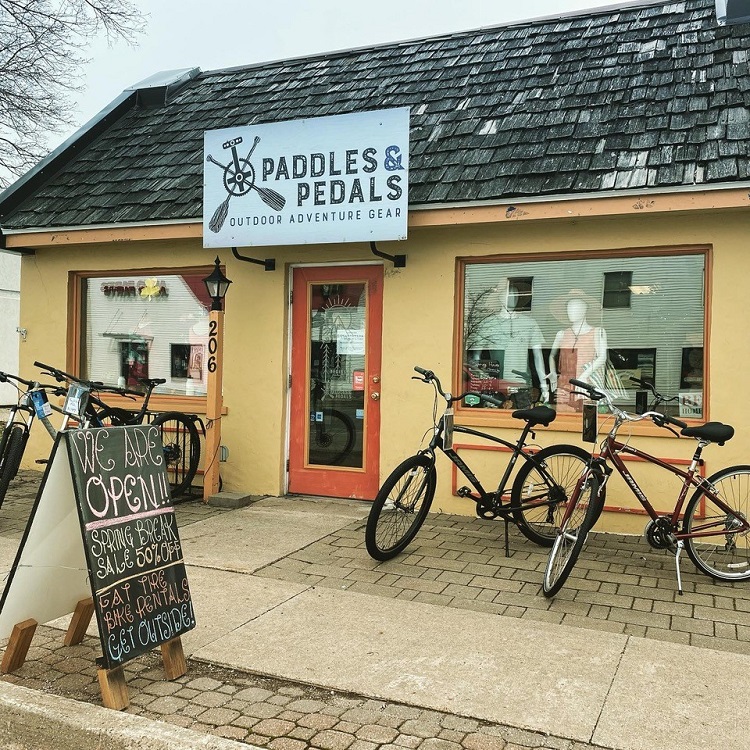
Paddles & Pedals
Through loan support from MEDC's Capital Access program and Northern Initiatives, Paddles & Pedals was able to position themselves for long-term success.
Paddles & Pedals is a seasonal bike, kayak, canoe and snowshoe rental and retail store located in the heart of the Northern Michigan tourist town of Bellaire. The outdoors-focused business was off to the best start they’d ever had in 2020, with revenues up 40 percent year-over-year coming into mid-March, according to Patrick Boyd, a veteran and co-owner with his wife, Margie Boyd.
And then the coronavirus hit Michigan.
As business owners across the state closed their doors to help slow the spread of the virus, the pandemic left many businesses - including Paddles & Pedals - facing uncertainty as they worked to recover and eventually reopen.
In April, Michigan Economic Development Corporation’s Capital Access team partnered with Northern Initiatives, a Community Development Financial Institution (CDFI), to offer micro and small business loans to Michigan’s small businesses impacted by COVID-19 in the 73 counties it serves. Thanks to this program, businesses like Paddles & Pedals received critical capital needed to continue their operations and to position themselves for future growth.
Paddles & Pedals reopened May 1, yet until restaurants and Airbnb’s could reopen to tourists, its retail and rental business was slow to recover. According to Patrick, his retail business is doing well now, yet bike sales have been hit hard. “The business typically sells about $70,000 worth of bikes a year, but sales so far this year are about $25,000.” And even though kayak rentals are booked for the season, the business went from renting twice a day to only once a day, which Patrick attributes to an inability to find employees to work.
“We received a $38,000 microloan from Northern Initiatives. We used some of the loan to pay for the invoices from the bike and apparel inventory we ordered last fall,” said Patrick. “We typically sell 50-60 percent of our bikes in March and April, and we use that money to pay our invoices when they come due, but because our sales were down, we used the loan to pay for the inventory - we knew we would sell it eventually. This was important to keep the lines of credit open with the vendors so we can order next year - we look at it as building for the future.”
The remainder of the loan was put under operating capital to carry the business through the winter when demand slows, and to purchase new fixtures for the retail floor. “By doing all of this, we are able to break our typical business cycle and be more successful long-term instead of just scraping by. This is the first time we’ve hit September and not had an open invoice,” added Patrick.
